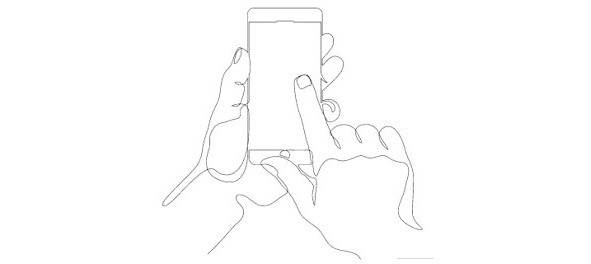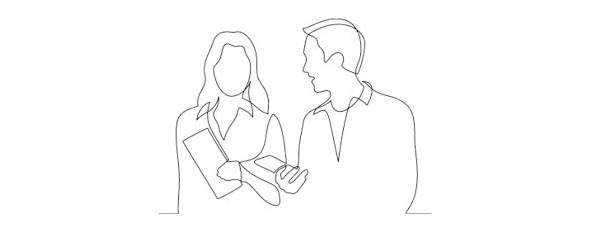
Бесплатный фрагмент - Successful interview
Employer interview preparation guide
Welcome, dear reader!
An interview, like any assessment situation, causes stress and tension, leading to negative emotions. I have prepared this guide to help you ease the process of preparing for an interview with an employer and relieve any anxiety before the conversation.
Here you will explore the inside of the interview, learn about the questions you may be asked and understand the behavior of employers during the meeting. You will discover what stress interviews and competency interviews are. You will figure out what to do if there is no response and feedback after the interview.
My goal is to increase your self-confidence and shape your perception of the interview as a dialogue between two parties about potential collaboration.
The guide is designed as a compilation of checklists, allowing you to tick off items to track your progress in preparation.
Good luck!
Recommendations and organizational details

# Read the job description and candidate requirements carefully.
# Research information about the company on its website and on social media: management, leadership, values and corporate culture, recent events and news, dress code and another requirements.
# Read your CV, be prepared to comment on every word (especially if there is terminology, projects, achievements), remember interesting work cases and challenging situations in your experience that you successfully handled.
# Remember the topic of the graduate thesis (for young professionals or interns).
# Think through your ideas and proposals for improving the company’s products and services.
# Print out your CV and take it with you.
# Consider your appearance (prepare your look). It should correspond to the desired position and the company’s dress code, ensure that your shoes are well maintained.
# Avoid using strong perfume.
# Use deodorant.
# Prepare answers to the questions provided below.
Preparing answers to popular questions
# Tell us about yourself?
— Start with your education, then briefly describe your career, highlight the main skills and achievements relevant to the job, and indicate the reason for seeking employment. If you are a young professional, talk about your educational projects, extracurricular and volunteer activities, internships, and training. Also, you can add information about your hobby.
# Why do you want this job? or Why do you want to work for us?
— In your response, demonstrate your commitment to the company’s products and services or values. Suggest own ideas and solutions (this is important).
# Why should we hire you?
— Explain what value you will bring to the employer – experience, innovative ideas, new approaches – and how your skills correspond to the job requirements.
# What are your strengths and advantages?
— List those, that correspond to the desired position and were mentioned in the requirements.
# What are your weaknesses?
— Look at it from the perspective of areas for development and discuss non-critical qualities or competencies for the position. Share why you consider these are ‘weaknesses’, how you are developing these aspects and why.
# What is your uniqueness?
— Remember what your colleagues, friends, and relatives appreciate and like about you. What are you proud of? What are you passionate about?
# What tasks have you solved in your previous job? What were the successes and the positive experience in project implementation?
— Emphasize personal achievements and their benefits for the company or the customer.
# What mistakes have you made or tell about your unsuccessful projects?
— Do not say you have not made any mistakes, provide examples of cases and tell about the experience you have gained, describe what lessons you have learned, how you have corrected the situation.
# How would you start your first working day?
— Get acquainted with the team, get acquainted with the current state of affairs, KPIs, and discuss the priority tasks with the manager.
# How do you resolve conflicts?
— Provide an example of a situation where you successfully resolved a conflict. Remember the win-win strategy, cooperation, and partnership.
# How do you cope with stress?
— Describe what you are doing to cope with stress exactly: sport/singing/art. Demonstrate a healthy way to deal with stress.
# Why are you looking for a job? What should change in your previous job for you to return?
— Talk about desire to increase scale or responsibility, change direction or apply new skills and expand expertise. Avoid negativity towards the previous employer; be prepared to answer questions about the reasons for leaving previous jobs.
# What are your goals for the future?
— Inform about the future associated with working in this company. The main thing in the answer is the realism of the plans and an understanding of what you are striving for.
# How do you spend your leisure time?
— High performers usually have hobbies that show their way of thinking, their ability to switch between tasks, and may also related to the values of the company’s corporate culture. Be careful, do not lie! If you say you like to read books, you should be able to quickly answer what was the last book you read.
# Do you have a dream?
— This question may be asked to learn about the candidate’s values and ambitions or way of thinking. Show sincerity and inspiration. Your honesty, enthusiasm, and passion will help.
# What salary range are you considering?
— Give a salary range, adding about 30% to your last average monthly earnings, while also monitoring the average salary in the labor market for professionals like you.
# Who can recommend you?
— Agree in advance with your previous manager or colleagues the opportunity to share their contacts in case of a request for recommendations (if you have had a positive experience of interaction).
Projective techniques
You are asked to talk about other people or an imaginary situation? Often, people respond based on their own experiences and thus talk about themselves.
Examples of projective questions:
— Why do people build their careers?
In answering, you are talking about why you build a career, revealing your motivation.
— What do people like about their work?
Presumably, the same things you like about your work.
— What could motivate someone to quit?
This is fundamentally important in your work/this demotivates you as well.

Competency-based interview
Competence is a combination of knowledge, skills, and abilities demonstrated in behavior, applied in specific situations or conditions. Competency-based interview questions are designed to understand the candidate’s behavior model, patterns, and to determine the level of competency development.
Competency-based interviews are structured using the STAR model:
S — situation
T — task
A — action
R — result
Бесплатный фрагмент закончился.
Купите книгу, чтобы продолжить чтение.
